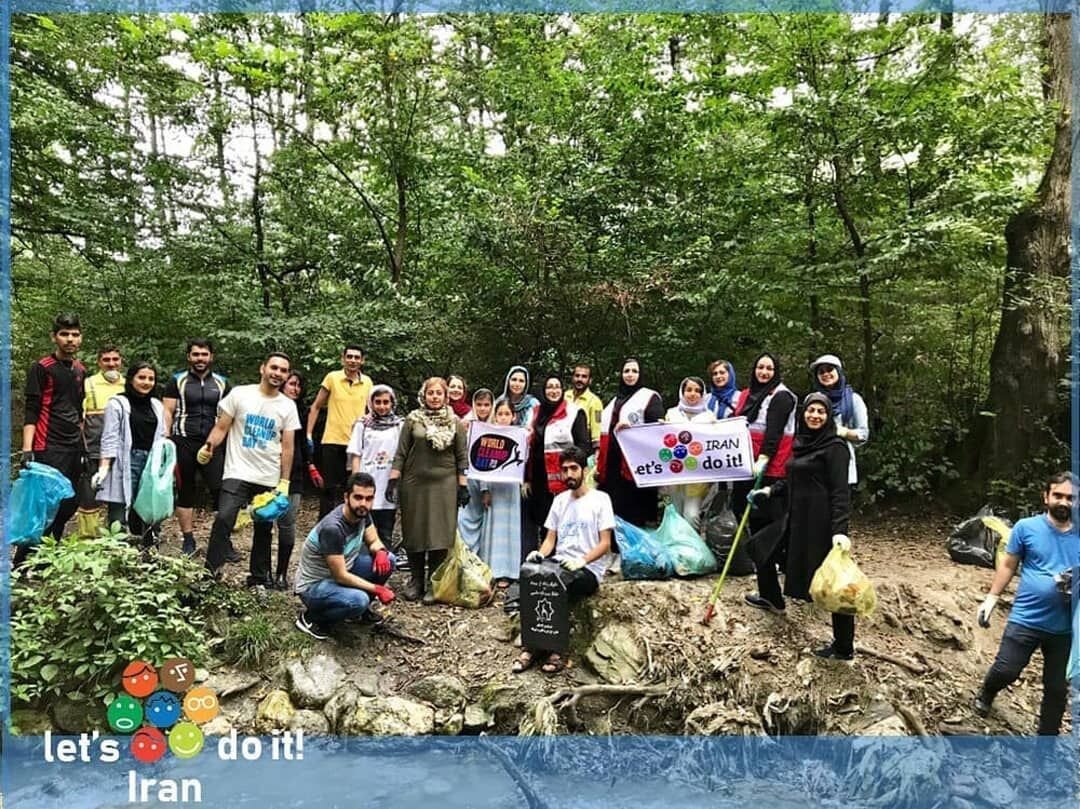World Cleanup Day: Let’s Do It World

TEHRAN- September 16 marks World Cleanup Day. This year, it has developed a new theme, "Let's Do It World," for managing solid waste and cleaning up litter from forests, rivers, streets, and beaches.
A good way to do this is by litter picking. It’s a safe way for everyone to get involved in World Cleanup Day, and will certainly contribute to this collective effort.
Being a global event, it also draws attention to the negative impacts caused by its accumulation and develops people's sense of responsibility regarding waste management.
Environmental challenges of plastic bags
Natural resources are necessary for human survival but have been put in danger by the same creatures.
Plastic bags, a privileged discovery in the 20th century, have continued to be used in the 21st century. Although known as a symbol of consumerism, they are considered a big challenge for the planet causing irreparable damage to the environment due to their very slow decomposition process, and low recycling rate.
Most importantly, they pose serious threats to the plains, rivers, forests, deserts, oceans, and the life of animal and plant species.
The United Nations Environment Program (UNEP) has introduced plastic pollution as one of the 10 major environmental problems in the world.
Statistics show that more than 8 billion tons of plastic have been produced in the world since 1950. Plastic production in the early years was equal to one and a half million tons per year. Currently changed to nearly 400 million tons which shows a stunning and increasing growth.
Iran is known as the 17th largest plastic producer in the world. Regarding the types of plastics, a small part of them is recycled as valuable waste, but some 60 percent of plastics are not recycled. They are either abandoned in nature or taken to landfills.
Currently, about 185,000 tons of plastic are produced annually in the country, which are not recyclable. Therefore, more attention should be paid to the collection and recycling of plastic waste so that it can be used as industrial raw materials.
It is hard to say precisely how much environmental pollution is caused by them, but researchers believe that the concentration of these pollutants in vital sources is increasing.
While it may not be possible to completely abandon plastic products or choose an alternative to them, they have to be used in an optimum way to cause minimal damage to the environment.
The principle of waste management should not fail to consider the role of people. The very first step is to educate them.
Mass media, particularly TV programs, should help to train people and raise their awareness to reduce plastic bag consumption.
World Cleanup Day is a push to pay more attention to the importance of the preservation and protection of the earth, the only safe human shelter, and to take action to save the planet.
Over one billion people around the world participate in nature clean-up programs on this day to stress the dangers of destroying the earth by waste, especially toxic industrial and plastic waste.
World Cleanup Day
Since 2018, World Cleanup Day has become the biggest peacetime civic movement in human history, uniting 197 countries across the world, and over 71 million volunteers, all striving to create a cleaner planet.
It’s a unifying movement that transcends borders, cultural differences, and even conflicts.
On one single day each year, volunteers and partners worldwide come together, to raise awareness of the global mismanaged waste crisis.
Even when faced with seemingly insurmountable challenges (climate disasters, wars, etc.), we clean up litter and waste from our beaches, rivers, lakes, forests, streets, parks…everywhere!
World Cleanup Day harnesses the power of people around the world to achieve incredible things by joining together.
Its beauty lies in cooperation and collaboration: building bridges between otherwise disparate communities – and including all levels and sectors of society – from citizens to businesses, to governments.
In 2018, over 18 million environmental heroes joined to create an epic 36-hour green wave of cleanups across all the globe’s time zones – beginning in Fiji and traveling around the world before ending in American Samoa.
The number increased to 21.2 million in 2019 – and millions still turned out in 2020 and 2021, despite the prevalent Covid restrictions.
